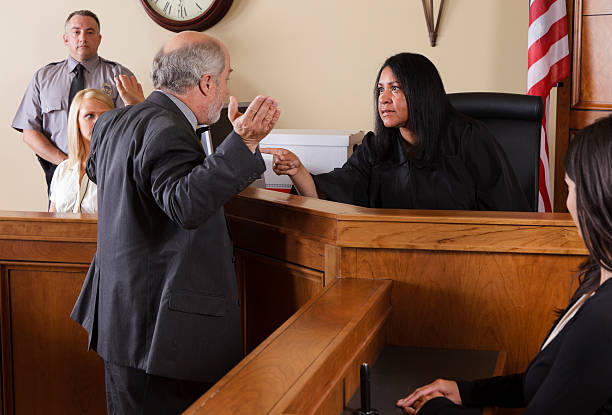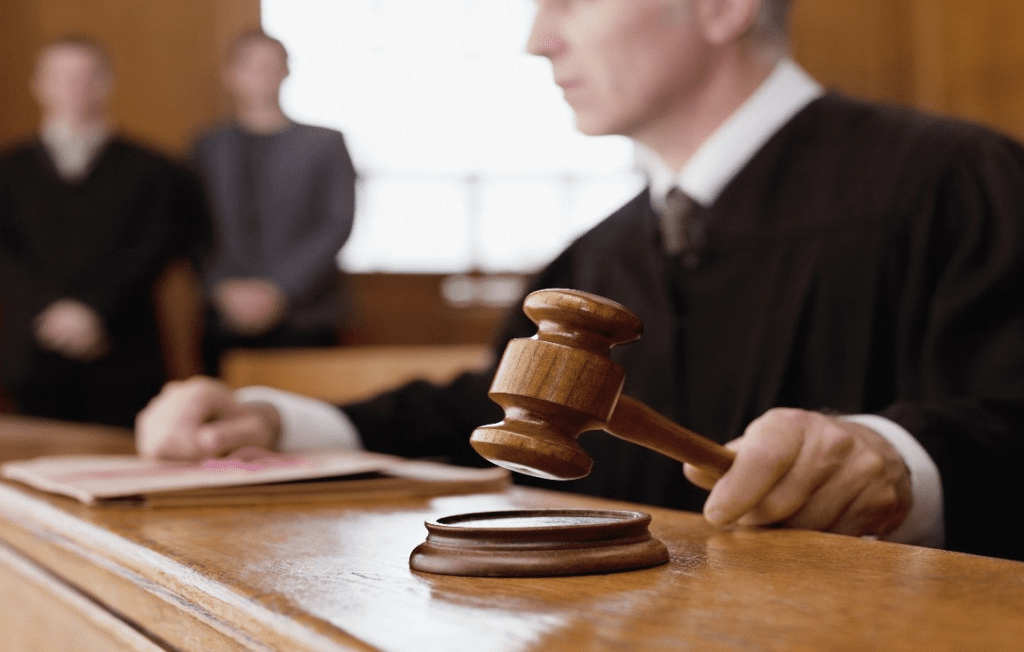Contempt of court is generally understood as misbehaviour in the courtroom or wilful disregard or disobedience of a court order. Common acts include a person refusing to be sworn as a witness, or refusing to answer as a witness when the law requires them to do so.
Case law defines contempt of court as an act that has the tendency to interfere with or undermine the authority, performance, or dignity of the court or those who participate in court proceedings.
In NSW, contempt of court is an offence punishable under Section 24 of the Local Court Act 2007 and Section 199 of the District Court Act 1973, which carries a maximum penalty of 28 days imprisonment and/or a fine of 20 penalty units. Part 55 of the Supreme Court Rules (1970) contains the laws and procedures relating to contempt.
This article discusses everything you need to know about contempt of court, contempt proceedings, and other matters relevant to this topic.
What are Acts of Contempt of Court?
Various court cases have outlined the following as some instances of acts of contempt of court:
- Continuously swearing and yelling at a magistrate,
- Evading questions in court or refusing to answer them,
- Disobeying court orders such as subpoenas to attend court,
- Refusing to take an oath or affirmation in court.
For instance, in civil proceedings of family law cases, if a party fails to obey court orders, they are n contempt of court. In another example, in R v Razzak (2006), where the witness in criminal proceedings, the victim in the prosecution of an accused on a charge of shooting with intent to murder, refused to take the oath or make an affirmation.
- Refusing to give evidence or refusing to answer a subpoena requiring attendance to give evidence
- Refusing to leave the courtroom after court has directed them to do so.
An example of this instance would be In the matter of Bauskis [2006]. Bauskis, along with other persons appeared in court wearing t-shirts bearing the slogan “Trial by jury is democracy”. Many of them were shouting offensive statements at the judge about corruption.
The judge ordered that the people not remain in court whilst wearing the t-shirt but they refused to leave. The court placed Bauskis in custody and gave him the opportunity to apologise and acknowledge his wrongdoing, but he refused.
- Failure to comply with a court order such as a suppression order or a non-publication order,
- Filming witnesses in an attempt to intimidate them,
- A plaintiff throwing a bag containing yellow paint at the judge, and another at the judge’s associate and court reporter [Prothonotary v Wilson [1999]], and
- Throwing insulting remarks to the jury after delivery of a guilty verdict [Prothonotary of the Supreme Court of NSW v Katelaris [2008]].
What about Rudeness or Extreme Discourtesy?

As a general rule, rudeness and extreme discourtesy by legal practitioners will not be contempt. In Toner v Attorney General for NSW, as cited in Adacot & Sowle [2020], a heated exchange occurred in the District Court between the counsel and the judge.
The counsel was convicted of contempt. The counsel acknowledged that he acted discourteously and incorrectly by shouting at the judge, but had apologised. The court accepted that, by his conduct, the counsel was not seeking to insult the judge. Moreover, counsel was not directing any personal grievance towards the judge.
The Court ruled that of itself, “mere ‘acts of rudeness’, discourtesy or even extreme discourtesy” on the part of legal practitioners would not amount to criminal offences or contempt. They have to take into consideration other factors as well. Further, the Court also recognises that police, judges and magistrates are, by their training and temperament, able to resist the sting of insults directed to them.
In Ferguson v Walkley (2008), Harper J said that:
“It is no offence simply to be angry with the authorities (including, of course, judicial authority). Some people can articulate their anger in measured language that clearly explains their reasons for feeling as they do. Others, especially when their anger is combined with high emotional stress… Depending always on all the relevant evidence, it would probably be quite wrong to charge someone with an offence simply because such language was used in anger.“
Contempt of Court: A Charge of Last Resort
For a person to be guilty of contempt of court, the prosecution must establish the following beyond a reasonable doubt:
- The defendant engaged in conduct that had the tendency to interfere with or undermine the authority, performance or dignity of the court or those who participate in court proceedings, and
- The defendant intended to do the act.
The charge will fail if the prosecution cannot prove each of these elements. However, courts have ruled that a charge for contempt is exceptional and should be exercised with restraint and only in clear and serious cases.
Stephen J in Keeley v Brooking (1979) said that the charge “should rarely be resorted to except in those exceptional cases where the conduct is such that “it cannot wait to be punished” because it is “urgent and imperative to act immediately” to preserve the integrity of a “trial in progress or about to start.”
Hence, it is clear that courts may only use charge of contempt as a last resort, and they consider all other options first.
Other options that court must consider include:
- a warning or reprimand,
- exclusion from court, or directing the person to leave the courtroom,
- an opportunity for the person to seek legal advice,
- a “cooling off” period followed by an opportunity for apology,
- whether, if the conduct involves a legal practitioner, a complaint could be made under the Legal Profession Act 2004, and
- whether disrespectful behaviour should be referred to the Attorney General.
Hence, courts can take these alternatives into consideration, and they may not resort to giving a charge of contempt of court unless it is absolutely necessary.
Seeking Legal Advice
You may have committed an act inside the courtroom and are wondering if your act amounts to contempt of court.
If you are facing a charge of contempt of court, JB Solicitors can assist you with all the legal matters involved. We are a team of experienced lawyers that can help with your defences and discuss legal options for your case.
Do you have any more questions on contempt of court? Contact us today.
